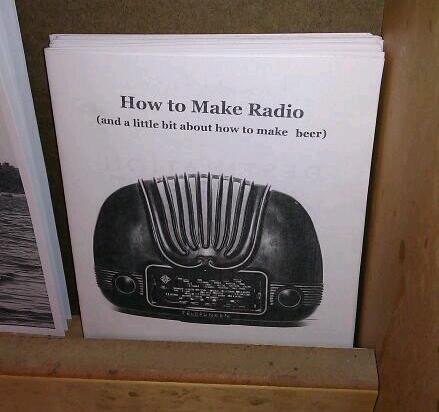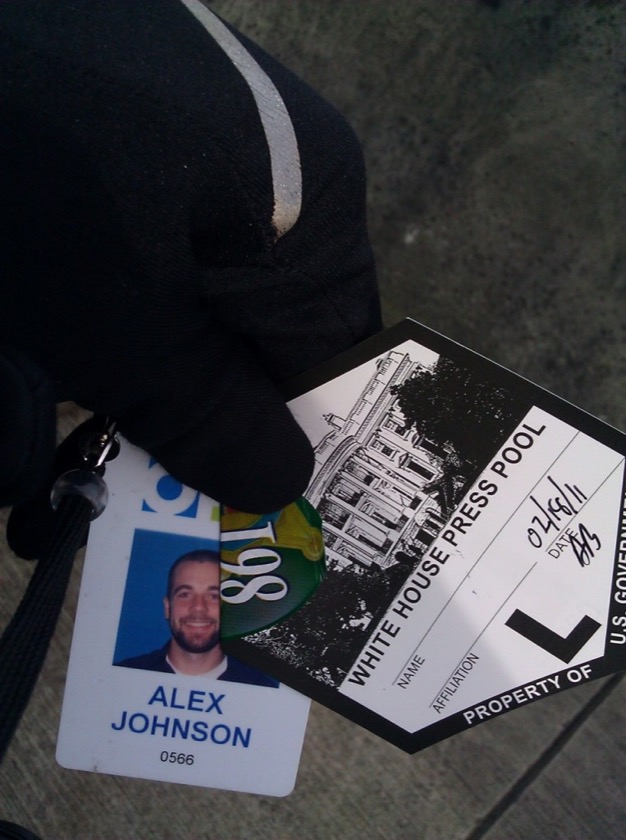Pacific Power tells me that me and my roommates used 4,004 kilowatt-hours of renewable electricity last year. That prevented the emission of 4,878 pounds of carbon dioxide, which is equivalent to not driving 4,960 miles or planting 57 trees. All for the low, low price of about five bucks a month. Not bad.
How to Make Radio

If someone who had never tried beer before told you that they’d found the best one ever, you’d be right to be a little skeptical. Well, that’s me, except that instead of beer I just read my first zine, and I’m pretty sure it’s the best one in the world.
It’s called How to Make Radio and it’s by Julie Sabatier. It’s about twenty-four pages long and covers everything that someone starting out in radio (like me) would need to know. Julie explains how to record good sound, recommends some good equipment (recorders, headphones, microphones, and software), and includes a radio script and good interview questions to ask. It doesn’t sound like a lot, but for someone like me it’s invaluable. Not only because it answers a lot of questions that have been floating around in my head since I started at Oregon Public Broadcasting in September, but because it says someone has done this before, you can do it too.
It costs two bucks. You can buy it at Powell’s and at Julie’s website, linked above.
Short and shallow, long and deep
Whenever I spend a lot of money on something I look up reviews online so I have an idea what I’m getting. Let’s say, for example, I was interested in buying a pair of Sennheiser HD 280 headphones. I’d search Google for “Sennheiser HD 280 reviews.” At the top of the list there are some decent reviews by CNET and some guy named Dan. Third on the list is the Amazon page for the headphones, complete with 570 customer reviews. The first two are long, in-depth reviews while the reviews on the Amazon page are, for the most part, quite short. There are some middle-length reviews out there, but most of them fall either into the ‘short-spent a few minutes writing this’ category or the ‘long-sat down to conduct a formal and thorough evaluation’ category. When I want to spend my money well and get something that I’ll like, the latter sort of reviews are invaluable.
It seems unnecessary to say that something that’s more thorough would be more valuable. After all, diligence takes time. But this is also an age in which a website solely designed for posts no longer than 140 characters is valued at $10 billion. So which is more important: the long or the short of it?
In the January 2011 edition of Wired, Clive Thompson argued that the spread of short form writing à la Twitter and Facebook is actually increasing our desire for in-depth analysis. This doesn’t mean that we want to read an essay rather than a tweet about who you drunk-dialed last night; it simply means that when we care about or are interested in something, we want our interest satisfied. Sometimes it takes more than 140 characters to do that.
Somewhat-relatedly, I came across this video comic describing the Huffington Post’s model of aggregation, i.e. linking to content instead of producing it themselves. The video ends with Little Tommy following link after link after link until he realizes that the links, instead of leading to an actual article, just keep linking back on themselves; a modern simulacrum.






